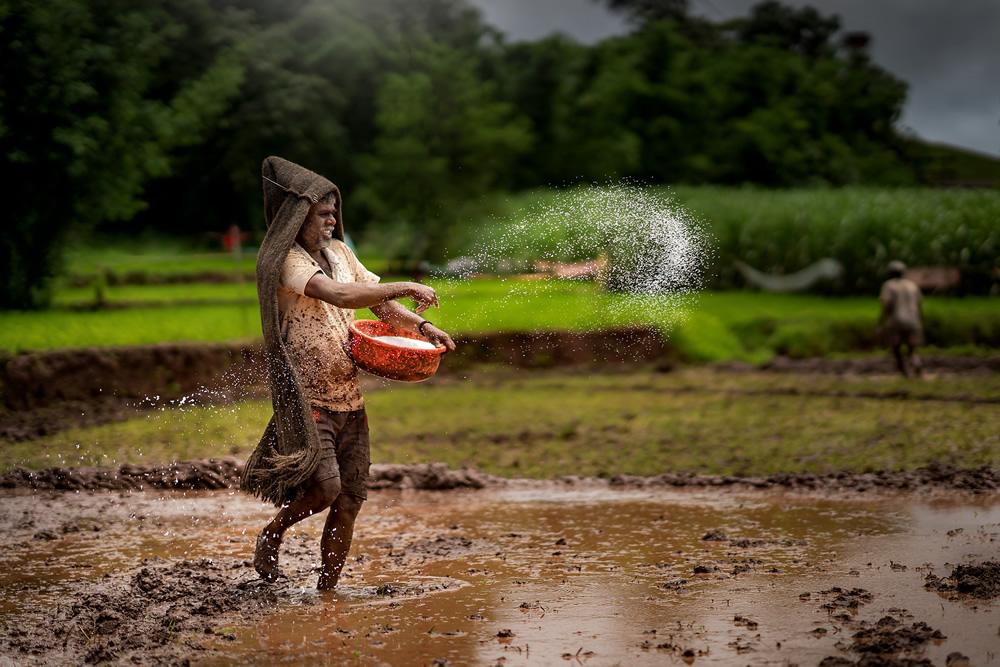Description:
Discover the rich heritage of Konkan’s traditional farming techniques that promote sustainability, biodiversity, and organic agriculture. Learn how ancient wisdom meets eco-friendly practices.
Introduction
The Konkan region of India, nestled between the Western Ghats and the Arabian Sea, is not only known for its scenic beauty and vibrant culture but also for its traditional farming techniques. Passed down through generations, these methods are deeply rooted in sustainability, biodiversity, and community-driven practices.
In this blog, we explore how the traditional agriculture of Konkan continues to offer solutions for climate-resilient and organic farming, even in the modern era.

The Agricultural Significance of the Konkan Region
Konkan spans parts of Maharashtra, Goa, and Karnataka, with a predominantly agrarian society. The terrain includes laterite soil, heavy monsoon rains, and hilly landscapes, making modern mechanized farming challenging.
That’s where traditional wisdom comes in — evolved to work with nature, not against it.
Key Traditional Farming Techniques in Konkan
1. Paddy Cultivation in Terraced Fields
- What it is: Farmers carve terraced fields into hillsides, allowing water retention during heavy rains.
- Why it works: Reduces soil erosion, maximizes space, and captures rainwater efficiently.
- Organic input: Farmers use cow dung, green manure, and compost for fertilization.

2. Mixed Cropping and Intercropping
- Example: Rice grown alongside pulses, millets, and oilseeds.
- Benefit: Ensures soil fertility, pest resistance, and food security.
- Traditional practice: Known locally as “jod rop” (companion planting), a time-tested technique.
3. Use of Indigenous Seeds
- Farmers preserve and exchange native seed varieties like:
- Rajghudya (a fragrant rice)
- Kalas (a drought-tolerant millet)
- Gavali (a traditional pulse)
- These seeds are naturally resistant to local pests and climate, reducing the need for chemicals.
4. Bio-fencing with Medicinal Plants
- Instead of modern fencing, farmers plant:
- Tulsi (basil)
- Karvand (black currant)
- Lantana and vetiver grass
- This protects crops from animals while enhancing biodiversity.

5. Seasonal Crop Rotation
- Helps maintain soil health and control weeds.
- Traditional cycles:
- Kharif (monsoon) – Rice, pulses
- Rabi (winter) – Millets, leafy vegetables
- Reduces dependence on synthetic fertilizers and pesticides.

Role of Community in Konkan Farming
Collective Water Management
- Small check dams, bhandaras, and kulagar water channels are managed jointly.
- Encourages equitable water use during dry months.
Traditional Farming Festivals
- Events like Pola, Nag Panchami, and Shimga are aligned with agricultural seasons.
- They promote seed sharing, livestock care, and community harmony.

Environmental and Economic Benefits
- Eco-Friendly: No harmful chemicals; minimal carbon footprint.
- Climate Resilient: Adapted to monsoon variability and drought.
- Economical: Lower input costs, higher long-term productivity.
- Tourism Potential: Growing interest in agro-tourism and eco-tourism in Konkan.
Challenges Facing Traditional Farming in Konkan
- Urban migration and aging farmer population
- Lack of documentation and promotion
- Pressure from commercial agriculture and real estate
- Climate change causing unpredictable weather patterns
Reviving and Supporting Traditional Farming
Here’s how we can help:
- Promote organic certification for traditional farmers.
- Encourage youth participation through training and education.
- Government support for indigenous seed banks and local markets.
- Boost agri-tourism to create additional income streams.
Conclusion
Konkan’s traditional farming techniques represent more than just agriculture — they are a way of life, reflecting ecological balance, cultural identity, and food sovereignty. As the world seeks sustainable alternatives to industrial farming, the Konkan model offers invaluable insights.
Let’s recognize, respect, and revive this green legacy — not just for Konkan, but for a sustainable global future.

🌾 Final Thoughts
Konkan’s traditional farming is not just a relic of the past — it’s a blueprint for a sustainable agricultural future. From water conservation methods to maintaining healthy soil without chemicals, these indigenous practices prove that nature-based farming is both viable and vital.
Let’s learn from the wisdom of Konkan’s farmers and work toward an agricultural system that respects the earth and nourishes generations to come.



